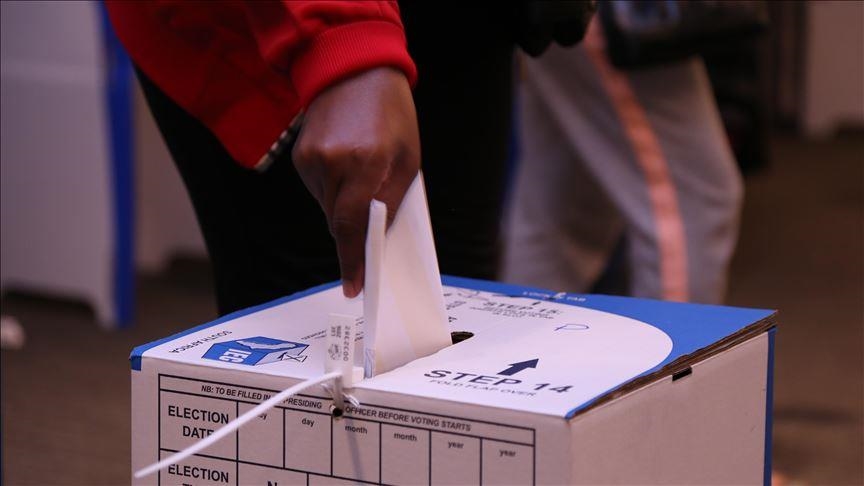EXPLAINER – Old rivals, new stakes in Malawi elections
Some 7 million Malawians have registered to vote in a closely watched election for president, parliament, and local councils

Lilongwe
- Some 7 million Malawians have registered to vote in a closely watched election for president, parliament, and local councils
- Presidential race is expected to be a tight showdown between President Lazarus Chakwera and his predecessor Arthur Peter Mutharika
- Voters will also choose from more than 2,000 candidates vying for 229 parliamentary seats and 509 councilor positions
LILONGWE, Malawi
Malawians will cast their ballots on Tuesday in a closely watched election for president, parliament, and local councils, a vote many describe as the most consequential since the country returned to multiparty politics in 1993.
With economic hardship, corruption scandals, and political rivalries dominating the campaign, analysts say the outcome could reshape Malawi’s fragile democracy.
According to official figures, out of Malawi’s 20 million people, around 7 million have registered to vote – 57% of them women. Voters will choose from 17 presidential hopefuls, as well as more than 2,000 candidates vying for 229 parliamentary seats and 509 councilor positions. Another 737 candidates are running as independents.
The presidential race is expected to be a showdown between incumbent Lazarus Chakwera of the Malawi Congress Party (MCP) and former President Arthur Peter Mutharika of the Democratic Progressive Party (DPP). Both men have faced each other in three previous elections, each contest marked by controversy and deep divisions.
Other prominent challengers include former President Joyce Banda of the People’s Party (PP), Atupele Muluzi of the United Democratic Front (UDF), and Dalitso Kabambe of the United Transformation Movement (UTM).
What’s at stake for voters?
The election takes place against a backdrop of rising socioeconomic pressures.
In a recent pastoral letter, Malawi’s Catholic bishops warned that the cost of living has become a “daily struggle for many.” An Afrobarometer survey in August showed food shortages remain the top concern, followed by health care, corruption, and inflation.
Natural disasters over the past few years have compounded the crisis. Cyclone Freddy in 2023 killed hundreds and displaced thousands, while El Nino-induced drought has left at least 4 million Malawians facing severe food insecurity.
Chakwera came to power promising to fight corruption, but scandals involving senior officials have tainted his government.
“There has been too much rhetoric on the fight against corruption in Malawi, but so far we haven’t seen anything practical,” analyst Paul Kulemeka told Anadolu. “Citizens aren’t inspired by the rate at which the fight against corruption has been handled.”
Mutharika’s record is also marred by graft and nepotism, with mass protests nearly toppling his administration in 2019.
The June 2025 death of Vice President Saulosi Chilima in a plane crash has loomed over the campaign, with opposition parties pledging to open a fresh inquiry if elected.
A likely runoff
Malawi’s constitution requires a presidential candidate to secure more than 50% of the vote to avoid a runoff. Analysts doubt any single contender will clear that threshold.
Mutharika defeated Chakwera in 2014 and again in 2019, but the 2019 results were annulled by Malawi’s Constitutional Court after what it called “massive irregularities.” Chakwera went on to win the 2020 re-run, backed by a nine-party alliance.
Since then, the rivalry between the two men – who command strong tribal followings – has only deepened.
The 85-year-old Mutharika is seeking a political comeback, while Chakwera, a former evangelical pastor, is fighting to overcome growing disillusionment over economic stagnation and corruption scandals.
Recent opinion polls by Malawi’s Institute for Policy Research (IPOR) tip Mutharika as the frontrunner, but observers caution the race remains wide open.
The campaign has also been marred by clashes between supporters of the MCP and DPP, raising fears of post-election violence. To ease tensions, 12 of the presidential hopefuls signed a national peace declaration committing to a credible and peaceful process.
“In the absence of a formidable electoral alliance among the contesting candidates, there is no single candidate who can get more than 50%,” political analyst George Chaima told Anadolu.
“It’s almost certain that the elections will go to a second round during which parties would opt to team up together.”
Anadolu Agency website contains only a portion of the news stories offered to subscribers in the AA News Broadcasting System (HAS), and in summarized form. Please contact us for subscription options.







